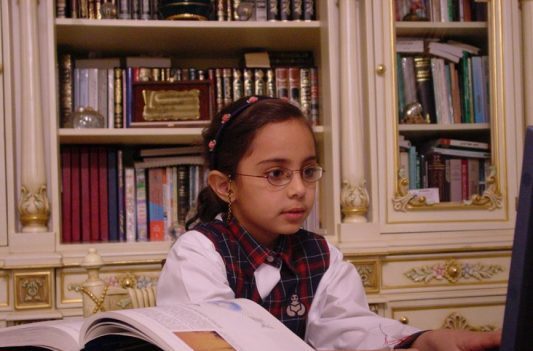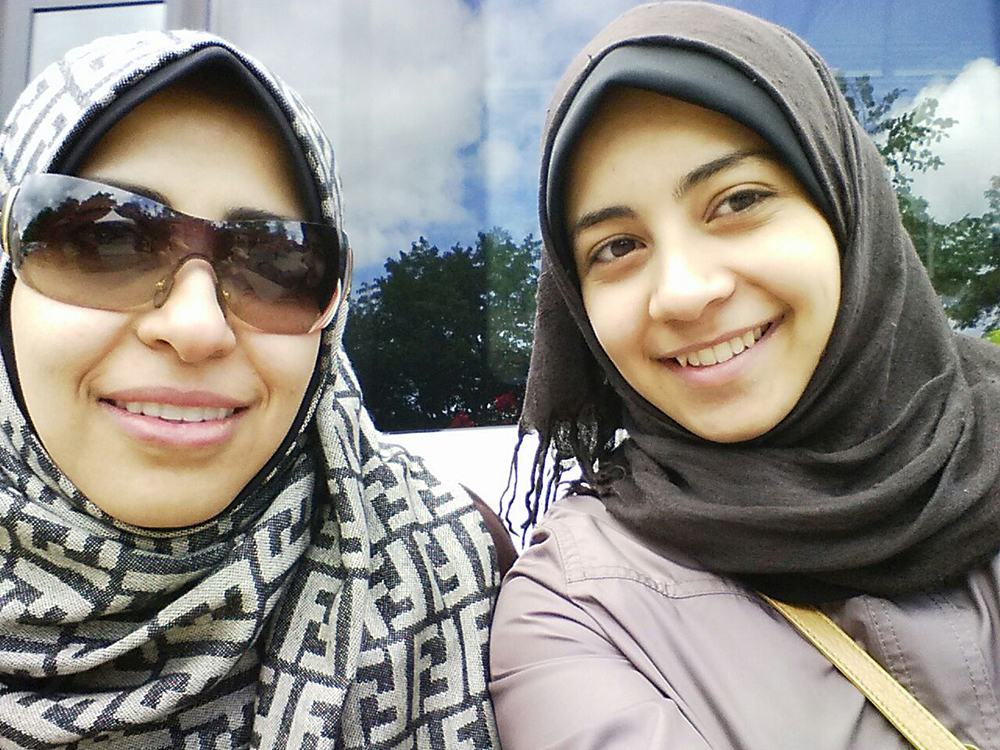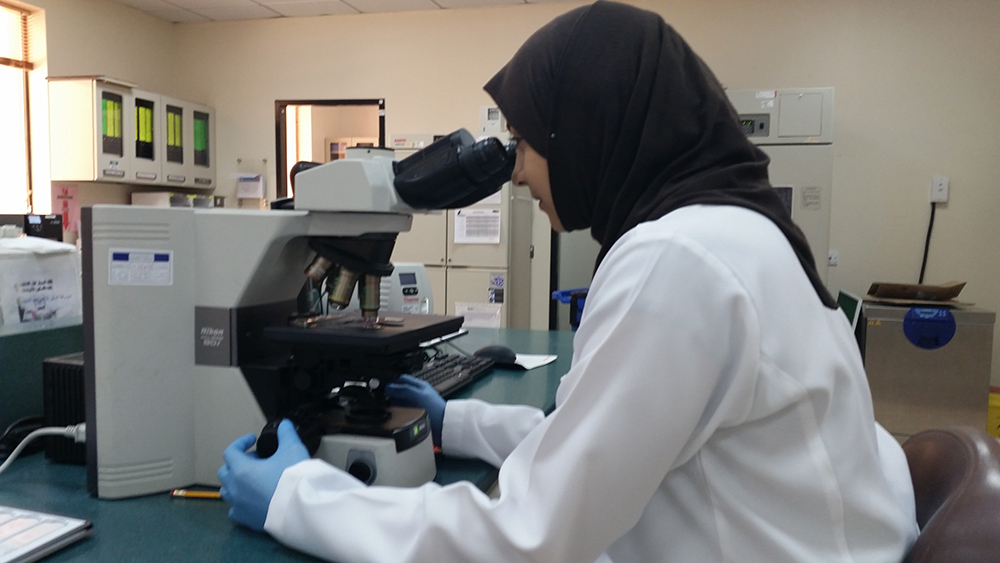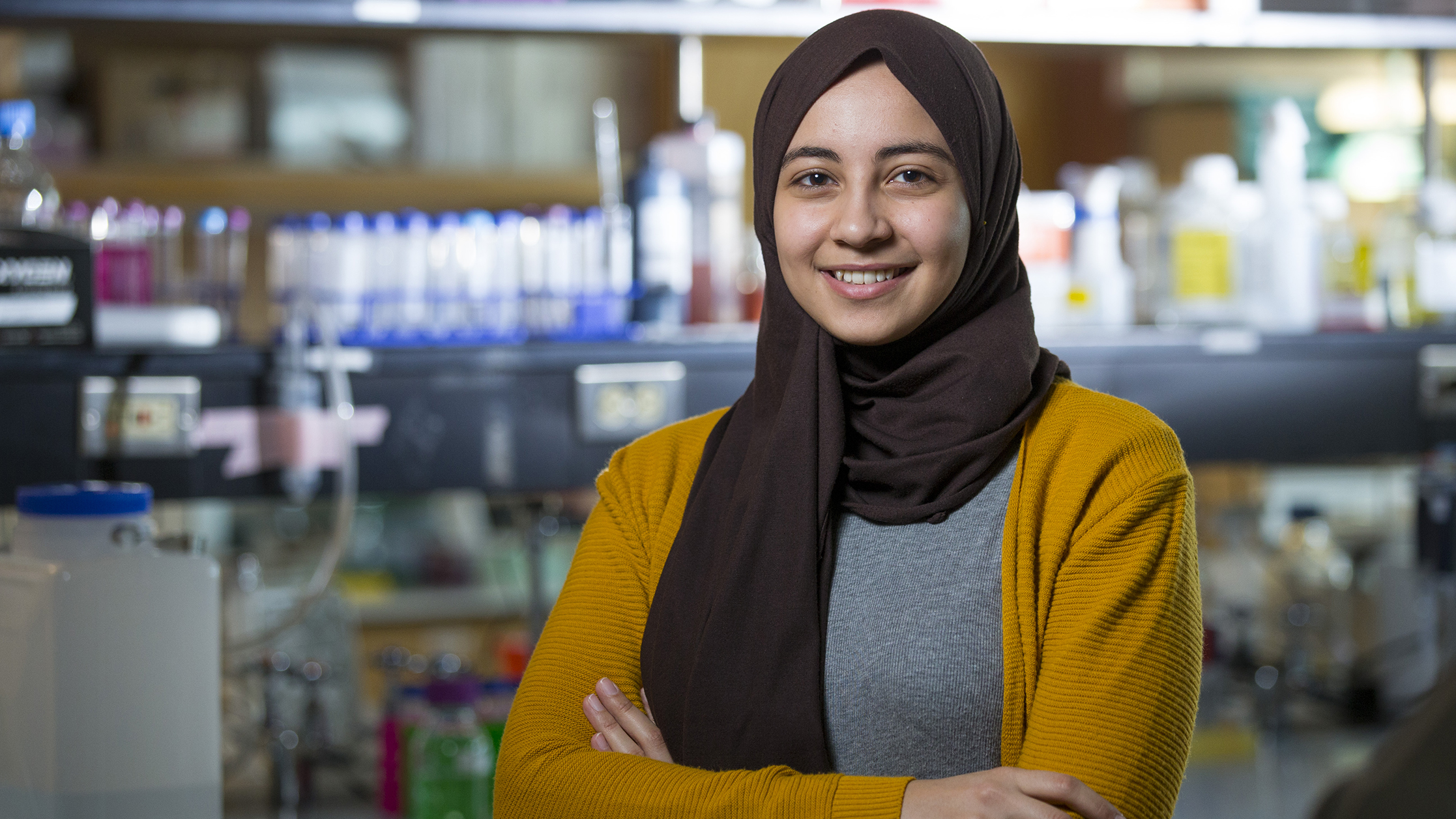Even though Majd Abdulghani is the first Rhodes Scholar from Saudi Arabia and an accomplished RNA biologist—she still believes that her most important work lies ahead of her. This determined trailblazer is on a mission to return to her hometown of Riyadh and expand research opportunities for girls and women in the Middle East.
“Being a Rhodes Scholar is wonderful and so is being a researcher,” she said. “However, being a professor in Saudi Arabia and a role model to young girls is the most important and rewarding role that I can play.”
Abdulghani (MS ’18, genetics, development, and cell biology) categorizes her longstanding goals as a “personal mission” that blossomed when she was a child who gravitated toward science and loved to ask questions about the natural world.

“Helping Saudi girls and women gain access to careers in research and science is my life’s work and my dream,” she said. “It’s something that I’m very passionate about and I hope that I’m able to achieve it.”
For Abdulghani, all roads lead back to Saudi Arabia, where she will bring home a rich trove of experiences, education and knowledge that will be used to advance her country.
“This is something I really want to change because it’s very important to encourage the next generation of girls to become tomorrow’s scientists,” said Abdulghani.
The making of a scientist
As a young girl growing up, much of Abdulghani’s routine was typical—going to school, playing with friends and the occasional quarrel with her brothers. Amid the everyday routine of her childhood was a very distinctive and extraordinary exposure to science and technology. Her parents filled their happy home with robust discussions about research and data. Her father taught her the importance of asking questions and her mother was a role-model scientist.
“Our house was always bursting with books about health, biology and chemistry. My father is a psychiatrist and he would share stories about his work and the field, and he often discussed the importance of getting to the facts,” she said. “He sparked my interest in biology and healthcare when I was just a young girl.”
“I’ve met amazing mentors during my education and I aspire to be like them when I have my own lab one day.”
Her mother inspired her to work hard and ask tough questions. “I still remember the click of the keyboard as my mother typed away, while working hard on her master’s degree in computer science,” she said.
Abdulghani’s mother eventually earned her Ph.D. and worked as a computer scientist. She would often bring her daughter to work, immersing her young mind in the world of computers, technology and science. Her mother taught by example, demonstrating that science was fun, rewarding and exciting.
“It was inspiring to visit my mom in the computer lab and to see her dedication to science and research,” she said. “These experiences definitely made a big impact on my life and career path.”

Her mother and father encouraged their daughter to find her way in the world and to discover her own passions. “My mother once said, ‘Wow, wouldn’t it be incredible if you someday discovered the genes that cured cancer?’”
Making impacts beyond the lab
Abdulghani’s deep roots in science have branched into a desire to help other budding young scientists achieve their dreams. She would like to play a role in removing obstacles that could dim those aspirations.
While pursuing her undergraduate degree in clinical-lab sciences at King Saud University, Abdulghani longed to explore within a research lab and conduct scientific studies. In Saudi Arabia, female students are not allowed to pursue the same research opportunities that men enjoy. Her first research experiences would have to wait, happening after she completed her undergraduate degree, during a two-month internship at King Abdullah University of Science and Technology.
“No one should be denied the ability to discover, to find things out and to further science,” said Abdulghani. “I plan to use my education and my expertise to make changes not just in the lab but to my culture back home,” she said.
After she earns her Ph.D. at Oxford University, Abdulghani has set her sights on becoming a professor at a university in Saudi Arabia, where she will teach at the undergraduate level. Taking her mission a step further, she plans to develop and manage her own research lab within the university—a step that her female undergraduate professors were not allowed to take.
Abdulghani believes that if she starts the lab and manages it, that she can make the rules.
“Helping Saudi girls and women gain access to careers in research and science is my life’s work and my dream.”
“Running my own lab ensures that I can offer research opportunities to undergraduate women; opportunities that I didn’t have,” she said. “This is important because there is so much potential for genetic research in Saudi Arabia. By excluding women, the full potential of science is not being realized. The world needs more women working in research.”
Abdulghani notes that progress is currently happening for women in Saudi Arabia. “There is a big push to empower women in the country at the moment,” she said. “I fully expect to have the full cooperation of my male colleagues and administrators as we work toward improving the country.”
Her drive and commitment to furthering scientific research in Saudi Arabia deepened after making a few scientific discoveries of her own, while working as a researcher at Iowa State University.
Changing the world through research
Abdulghani arrived on the Iowa State campus in the fall of 2016 as a master’s degree student in the Department of Genetics, Development and Cell Biology. She moved to Ames and joined her husband, who had been working on his Ph.D. in electrical engineering at Iowa State.
“He was always telling me terrific things about Iowa State, and I was impressed with the research opportunities here,” she said. “I don’t think I’ve ever seen so much dedication to student wellness and happiness as I have at Iowa State. I was worried about being an outsider and I never felt that way. It’s very diverse. Everyone is very welcoming, no matter where you come from. Iowa State certainly didn’t disappoint.”

Within a few months, Abdulghani began working with the Tuteja Lab, headed by Geetu Tuteja, assistant professor and Gregory L. and Kathleen C. Geoffroy Faculty Fellow, in the Department of Genetics, Development, and Cell Biology.
"I truly enjoyed working with Majd. Not only is she bright and an excellent communicator, she is also very humble,” said Tuteja. “She was always enthusiastic about new experiments, writing projects, and lab discussion topics.”
During her two years in the Tuteja Lab, Abdulghani made a discovery—that 20 genes may impact a critical process called trophoblast invasion. This process happens during embryonic development and is key to establishing a healthy pregnancy. Optimal trophoblast invasion ensures that adequate circulation and blood flow exist between mother and baby; and that the placenta is properly attached to the uterine wall.
“If the research bears out, there is hope that these genes could be potential drug targets,” said Abdulghani. “This could lead to breakthroughs in treating pregnancy disorders, such as preeclampsia.”
Abdulghani has pivoted to studying RNA. She currently conducts research for Vivian Cheung, a professor at the University of Michigan’s Life Sciences Institute. Her research examines the ways in which RNA impacts cellular activity; and how RNA transmits messages inside the cell and how those messages might affect cell health and development.
“I don’t think I’ve ever seen so much dedication to student wellness and happiness as I have at Iowa State. I was worried about being an outsider and I never felt that way."
Abdulghani will continue studying RNA in the context of cancer research while at Oxford University. She’ll spend four years conducting research and earning her Ph.D. in oncology. “I’m really excited and I think that my life will be very different after this experience. Being at Oxford will be very rewarding and it will be one more adventure that I can bring back to Saudi Arabia,” she said.
Becoming the mentor she needed
“I’ve met amazing mentors during my education and I aspire to be like them when I have my own lab one day,” said Abdulghani. “Dr. Tuteja from Iowa State and professor Vivian Cheung at the University of Michigan have shaped my future.”
When she envisions her eventual return home to Riyadh—Abdulghani sees herself sharing her knowledge, experiences and a passion for science, with young Saudi girls who may someday want to follow in her footsteps.
"I have a dream to start a children's science museum in Riyadh."
“Because I didn’t have the chance to experience undergraduate research when I was a young girl or an undergraduate student, I feel strongly about returning home as that researcher who will offer those opportunities to young women,” she said. “I can’t imagine anything more rewarding.”
During her two years living in Iowa, she learned firsthand that children are like sponges who love to soak up scientific knowledge. Volunteering for the Science Center of Iowa in Des Moines, Abdulghani would explain hands-on science and discuss her research in compelling ways that sparked their curiosity.
“Science centers and museums are so important because they make science accessible and fun for children,” she said. “We don’t have nearly enough science centers for children in Saudi Arabia. We have work to do in my country and there’s a lot missing in that respect.”
Abdulghani has definite plans to do something about that.
“I have a dream to start a children’s science museum in Riyadh,” she stated.
From developing science centers and starting her own research lab—to becoming a professor—this determined Iowa State alumna has ambitious goals. She wants to use her experiences at Iowa State, the University of Michigan and Oxford University to become the educator, researcher and role model that she needed when she was growing up in Saudi Arabia.
“I know Majd will continue to do great things,” said Tuteja. “The Rhodes Scholarship is an amazing opportunity that she deserves, and being a Rhodes scholar may help it happen sooner.”
“I just can’t wait to make a difference, in cancer research, and in also making my country a better place,” said Abdulghani.
